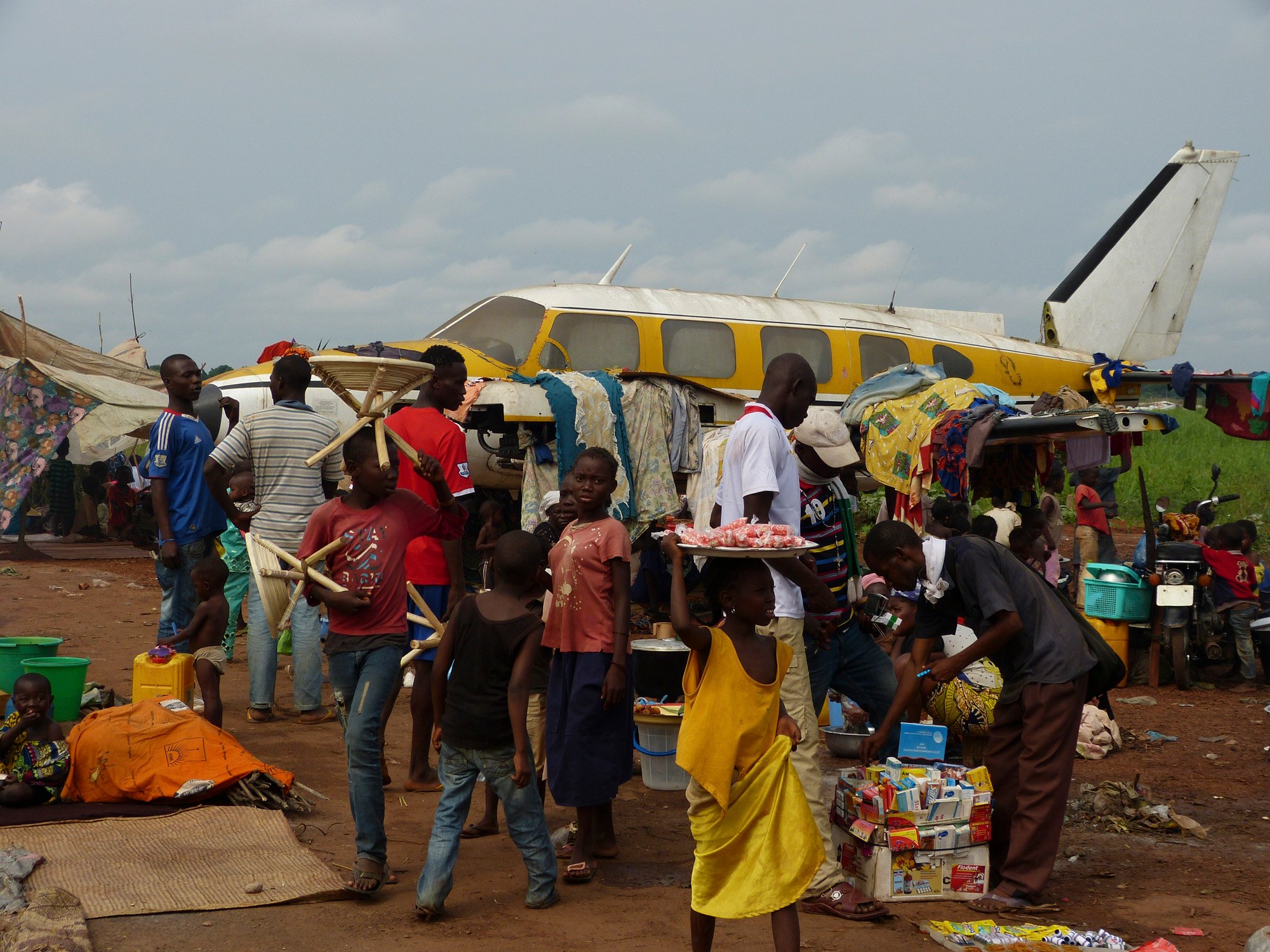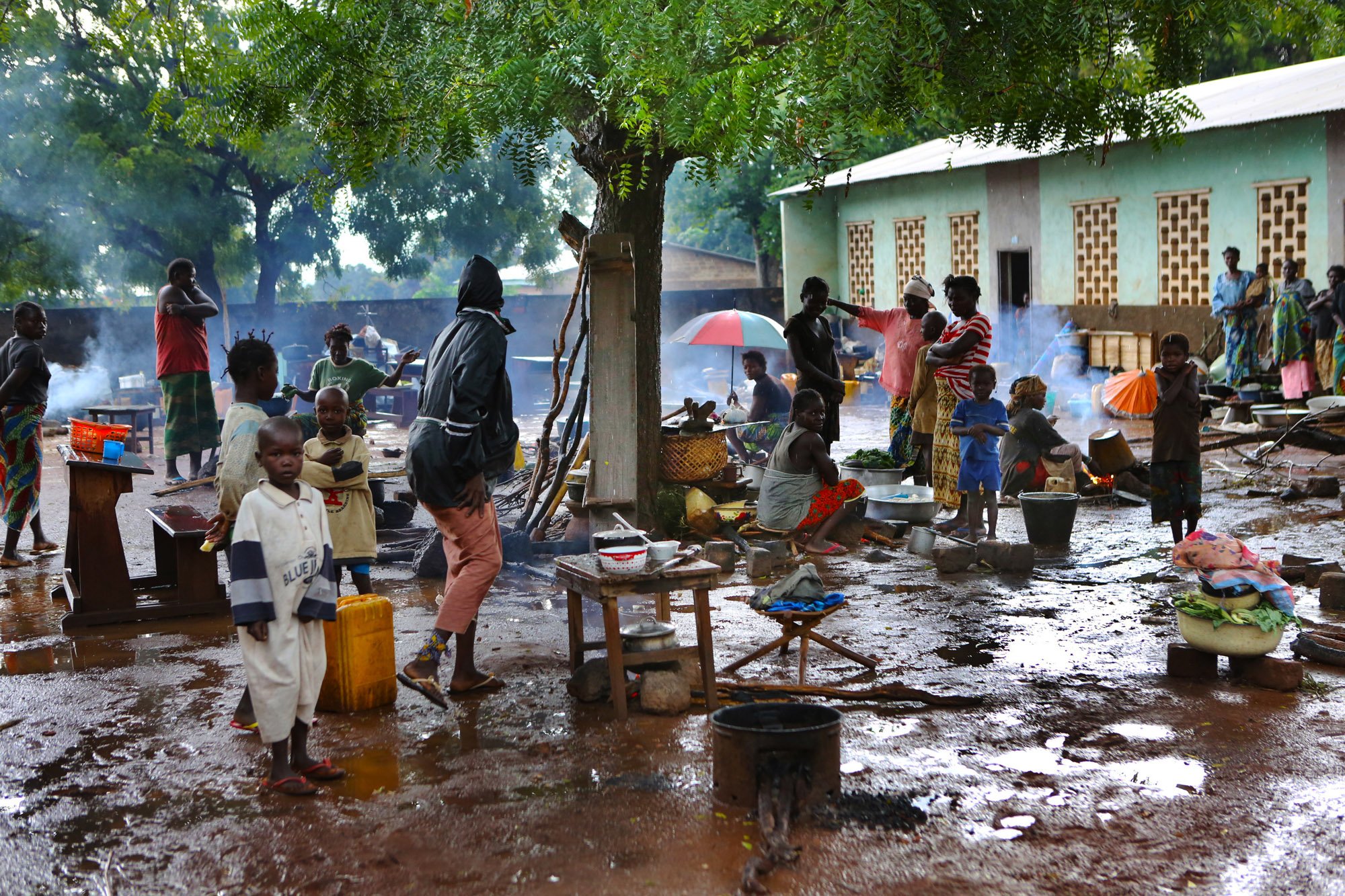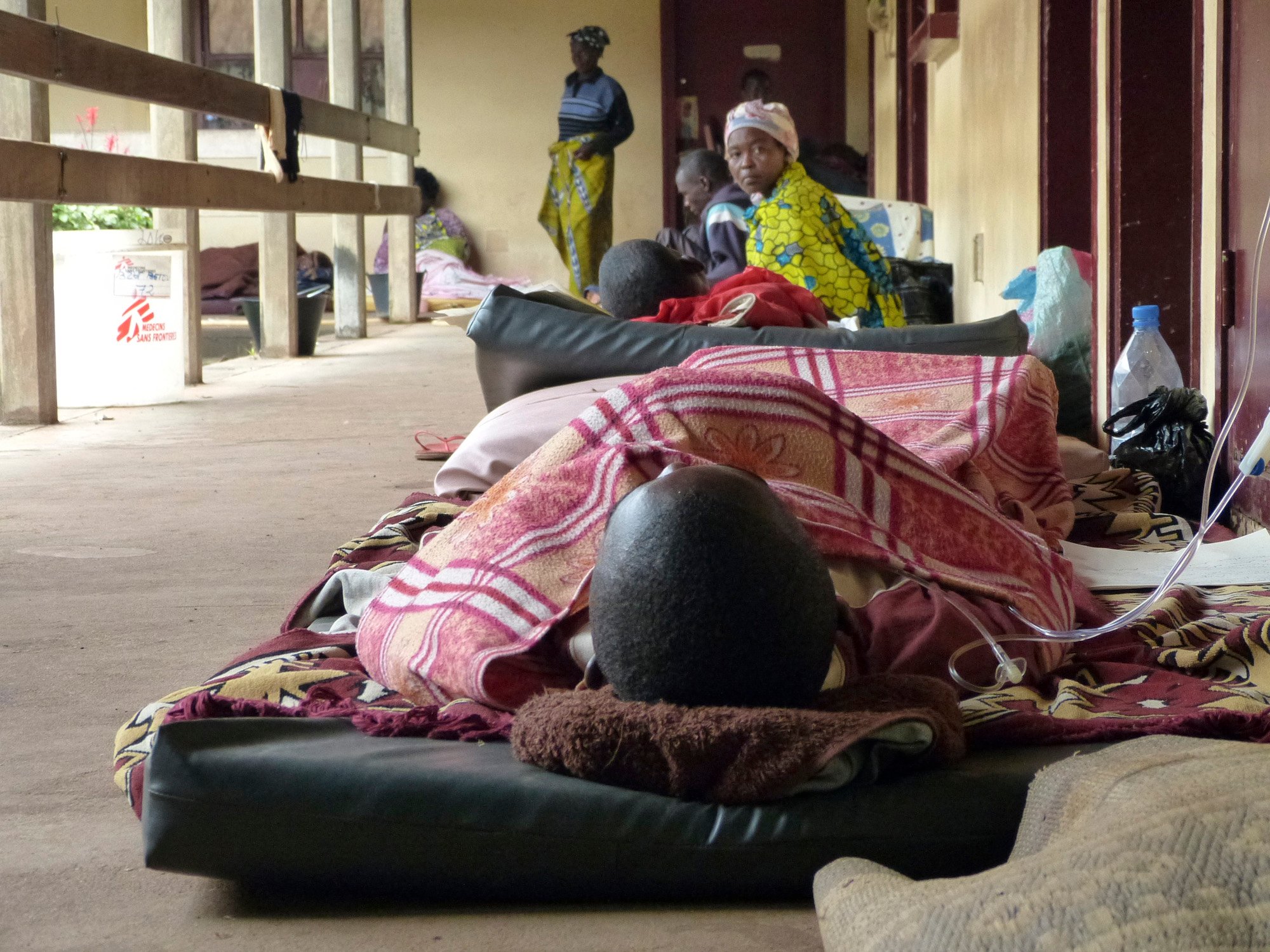Bangui: Rain does not wash the blood away



José Mas Campos, MSF Emergency Coordinator in Bangui, Central African Republic. He wrote this account of his experiences there in December last year. The situation today has not improved.
The shuddering thunder of anti-aircraft guns and submachine guns went on non-stop in the distance until it died down around midday. From then on, gunshots and explosions in the distance filled the town’s soundscape with echoes and bad omens. While our doctors and nurses, seasoned MSF veterans, were giving their all on one of the most chaotic, bloodthirsty days they recall.
At the Hôpital Communautaire in Bangui, dozens of injured people crowded against the hospital gates, as weapons were cocked threateningly and the men brandishing them took injured ‘suspects’, despite the efforts of unarmed humanitarian workers putting their lives between the victims and their captors.
That night threatened to become even bloodier: we feared that armed men aligned with the Séléka coalition that had brought them to power, and who had taken arbitrary and baneful control over the town, would break loose, helped by the semi-darkness, and set off in retaliation for the morning attack, on a bloody chase of everyone suspected to be collaborating with the self-defence militia responsible for the fighting calling themselves Anti-Balaka (anti-machete).
The modus operandi consists of: combing entire neighbourhoods accused of complicity or cover-up; chasing the suspects house by house, door to door, and torturing and executing in cold blood each and every male between 15 and 40; burning down houses with entire families inside, and giving free rein to the vile rule of the machete and indiscriminate mutilation.
The next morning we went out in our ambulances driving through the town in search of injured people that might have survived not only the fighting but the rage unleashed under the cover of the night that hides everything. In that torrential rain we watched, as we drove past corners and avenues, dozens of dead bodies piled up in the streets. Some of them had been tied up and killed in cold blood opposite Hôpital Amitié, others were half naked and left as a warning for all passers-by. The rain splashed the streets with the mud concealing the blood.
That day I started working as the head of the ambulance service. Our aim was to go in search of injured and sick people wherever they were and take them back safely to the hospitals where MSF works. This non-stop coming and going across the length and breadth of a wounded town allowed us to know in real time the security situation in each end every corner and prepare our centres to receive new massive flows of injured people.
The mob’s derangement knew no creed or religion. Believers and non-believers followed the same wicked an eye-for-an-eye a tooth-for-a-tooth rationale: “this one collaborated with the Seleka, let’s destroy his shop”, “this one burnt my house throwing a hand grenade and killed my daughter, he deserves to die”, “this one is a Muslim, look him in the face and kill him, he isn’t from here”…
During those ten days, we picked up people with gunshot, machete and shrapnel injuries, carrying some of them even in wheelbarrows. Some people’s feet were completely lacerated, we treated open fractures, alleviated victims of torture, cared for traumatised girls, witnessed shooting nearby our hospitals, took shelter in the operating theatre while the walls shook, we fought our way in the midst of a flood of injured people, we saved lives…
It is precisely places like Bangui, like the Central African Republic, a country which many people were unaware of until this recent wave of violence broke out, that push you to the limits, yours and those of others. It is also in places like this where our work acquires significance, being where we are and doing what we do is essential. It is also sounding the alarm to prevent this chain of successive atrocities, violence and revenge from happening invisibly. We put it not only before the eyes of the international community, of decision-makers, but also in front of each and every normal person, like you, inhabiting our streets.
" Article originally published in the Spanish newspaper El País "





Leave a Comment